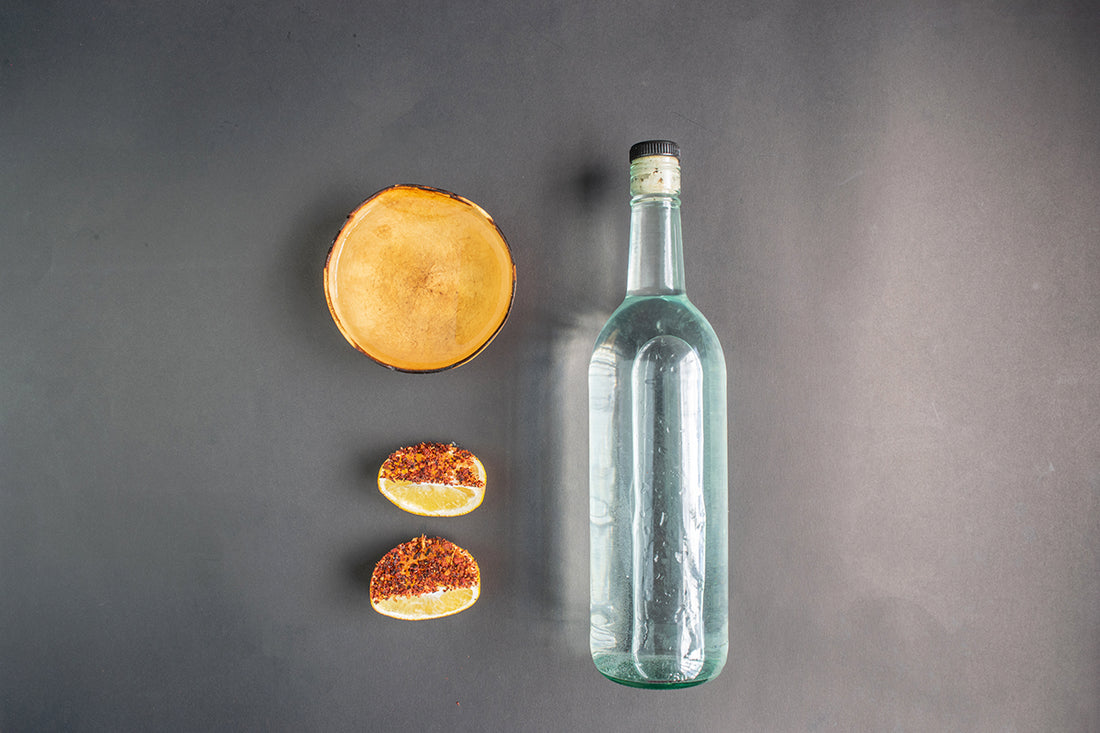
The History of Mezcal: A Journey Through Time and Tradition
Share
When it comes to the world of spirits, few can boast a history as rich and colorful as mezcal. This unique, smoky beverage, often overshadowed by its more commercial cousin, tequila, is experiencing a resurgence in popularity. At Mezcal Campante, we celebrate this traditional spirit's heritage, quality, and cultural significance. Whether you're a seasoned connoisseur or a curious newcomer, understanding the history of mezcal can deepen your appreciation for this distinctive elixir. Join us as we take a detailed journey through the centuries to uncover the origins, evolution, and cultural significance of mezcal.
Ancient Beginnings: The Birth of Mezcal
Mezcal's story begins long before the arrival of Spanish conquistadors in the early 16th century. Indigenous peoples of what is now Mexico have a long history of fermenting the sap of the **agave plant**, a practice dating back at least **2,000 years**. These early beverages, known as **pulque**, were low-alcohol drinks used in religious ceremonies and social rituals, revered as sacred and often reserved for priests, warriors, and nobles.
The Spanish Conquest and the Art of Distillation
The introduction of distillation to the New World marked a pivotal moment in the history of mezcal. When the Spanish arrived in Mexico in the early 1500s, they brought the technology for distilling spirits, learned from the Moors. The indigenous people quickly adapted this technique to their native agave plants, creating what we now know as mezcal.
The term "mezcal" originates from the Nahuatl word “mexcalli,” meaning "oven-cooked agave." This name reflects the traditional method of cooking the agave hearts, or piñas, in earthen pits lined with hot stones, imparting the characteristic smoky flavor that mezcal is celebrated for.
Colonial Expansion and the Spread of Mezcal
During the colonial period, mezcal production spread throughout Mexico. Each region developed its own techniques and variations based on the types of agave available and local traditions. **Oaxaca, Guerrero, Durango,** and **Jalisco** became notable centers of mezcal production, still renowned for their exceptional spirits today.
Despite its growing popularity, mezcal remained a rustic and local beverage, often produced in small batches by family-owned distilleries. It was primarily consumed within Mexico and had yet to achieve significant international recognition.
The Mezcal Boom: 20th Century and Beyond
The 20th century brought significant changes to the mezcal landscape. In the early 1900s, tequila, a type of mezcal made specifically from the blue agave plant in Jalisco, began to dominate the Mexican spirit market. Fueled by industrial production methods, government support, and marketing campaigns, tequila positioned itself as the sophisticated choice for drinkers.
Meanwhile, mezcal maintained its artisanal roots and was often viewed as a rougher, less refined cousin to tequila. However, this perception began to change in the late 20th century as a growing appreciation for craft and heritage spirits sparked renewed interest in mezcal. Connoisseurs and bartenders worldwide began recognizing the complexity and depth of flavors that mezcal offers.
The Mezcal Renaissance: 21st Century and Global Recognition
The 21st century has seen a true renaissance for mezcal, as artisanal production methods, sustainable practices, and the preservation of traditional techniques have become selling points for a global market increasingly interested in authenticity and quality.
Several factors have contributed to this mezcal boom:
- Craft Movement: The global trend toward craft and small-batch production has elevated mezcal's status. Consumers are drawn to the story behind each bottle, the unique characteristics imparted by different agave varieties, and the hands-on production methods.
- Cultural Export: Mexican culture, including its cuisine and beverages, has gained international acclaim. Mezcal, with its deep cultural roots, has become a symbol of Mexican heritage, celebrated at events and festivals worldwide.
- Mixology: Innovative bartenders have embraced mezcal for its versatility in cocktails. Its smoky flavor adds depth to classic drinks and inspires new creations, making it a favorite among mixologists.
- Celebrity Endorsements: High-profile endorsements from celebrities and chefs have helped bring mezcal into the mainstream spotlight, increasing its popularity across various demographics.
Mezcal Today: A Spirit of Tradition and Innovation
Today, mezcal is enjoyed by aficionados around the globe. Its production remains largely artisanal, with many mezcaleros (mezcal producers) adhering to age-old methods passed down through generations. The **Denomination of Origin (DO)** for mezcal, established in 1994, helps protect traditional practices and ensure the quality of the spirit.
Modern mezcal production continues to be defined by its deep connection to the land and the people who make it. Each bottle tells a story of its origin, from the specific type of agave used to the techniques employed by the mezcalero. The diversity of agave species, each contributing its distinct flavor profile, makes mezcal one of the most varied spirits in the world.
The Future of Mezcal: Challenges and Opportunities
While mezcal's future looks bright, it also faces challenges. The growing demand for mezcal puts pressure on agave populations, which take years to mature. **Sustainable farming practices** and the conservation of wild agave species are crucial to the spirit's long-term viability.
Maintaining the balance between traditional methods and commercial production is vital as mezcal becomes more popular. There is a risk of industrialization and homogenization, which could dilute the unique characteristics that make mezcal special.
Embracing the Spirit of Mezcal
The history of mezcal is a testament to the resilience and creativity of the Mexican people. From its ancient origins to its current status as a beloved global spirit, mezcal embodies tradition, craftsmanship, and a deep connection to the land. Whether you're sipping it neat, enjoying it in a cocktail, or pairing it with food, each taste of mezcal is a journey through centuries of history and culture.
As you explore the world of mezcal, remember to appreciate the stories behind each bottle and the dedication of the mezcaleros who keep this tradition alive. At Mezcal Campante, we invite you to join us in celebrating this remarkable spirit. Cheers to the past, present, and future of mezcal!
Special Offer:
USE DISCOUNT CODE: LOVEHARDSIPSLOW and get 10% off your favorite Mezcal ;-)


